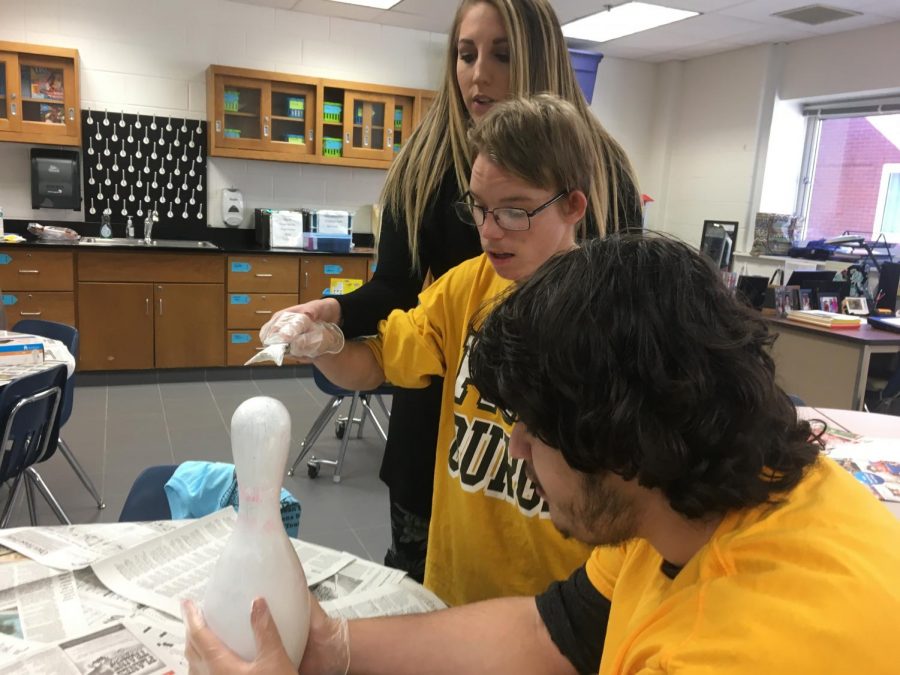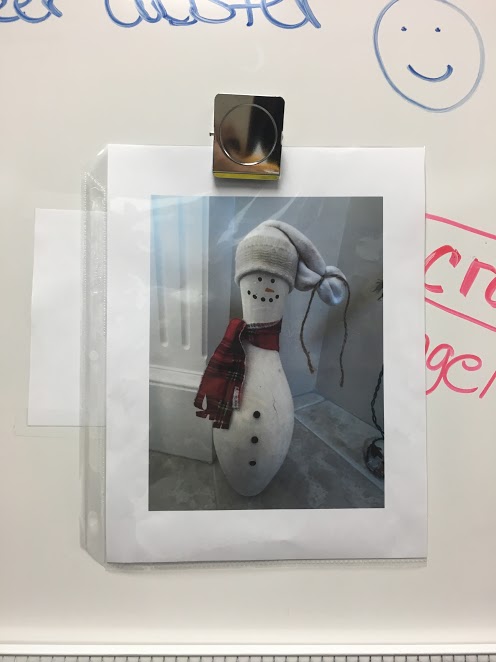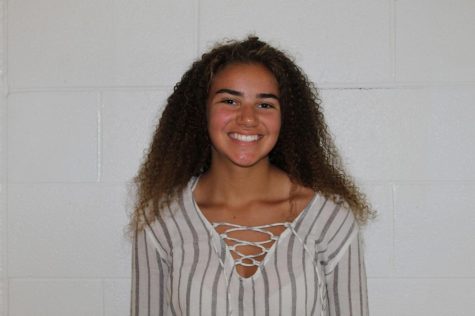Special Education students learn vocational skills in school program
Lauren McIntyre assists students Samuel Littleton (left) and Nicolas Mejas (right) painting bowling pins for their new product, soon to be sold in the mail room and coffee shop to teachers.
December 22, 2017
In science students learn of symbiotic relationships like the Oxpecker bird to the zebra. However, many are unaware of an impactful, symbiotic relationship in the walls of Ocean Lakes High School: students who participate in the workplace readiness program. The program continues to grow, and the students continue to gain more valuable skills and benefit from their experiences from time spent during the special education department’s program.
Special Education teachers Virginia Lambright and Lauren McIntyre supervise students in the employment skills program where they complete tasks for teachers during 3B. Recently, Lambright and McIntyre advertised various students who serve as volunteers or helpers for teachers during third block; however, according to Lambright, student jobs have always been available. The advertisement says students will help with “tasks such as filing, sorting, cleaning, etc.”
Though only three tasks are advertised, students do much more in the workplace readiness class. For example, on Nov. 20, through their company Waves of the Future Enterprise, the students worked together and painted bowling pins in order to sell decorative snowmen to teachers. Earlier in the year, the class also made the freshmen class t-shirts with a printing press. Frequently, according to McIntyree, students help put together SOL packets, clean chairs in the Schola, and remove trash.
“It’s a lot of routine activity, but then we get to do fun stuff like this,” said McIntyre.
According to studies from Penn State University graduate student Michael Harvey, vocational skills are a key factor in preparing students with disabilities for the work world.
“Findings from the NAVE [study] suggest that vocational education participation is a significant contributor to positive post-school outcomes for students with disabilities,” said Harvey.
From the classroom at the age of 16, some students get the opportunity to engage in real life workplace readiness skills in local businesses.
“The students learn how to work with coworkers, supervisors, and most importantly employers,” said department head Brian Mann.
Many students involved in the program move onto food prep and retail jobs, according to Mann. One student even works at Buffalo Wild Wings on A days.
“[The classroom is] a safe environment that provides support for vocational skills,” said Mann.
With the in-school practice, teachers can assess how students work with others.
“We can see how well they work and how they work with other students,” said Lambright.
Mann sees this as a highly valuable program, since the department has “the biggest work program in the city.”



